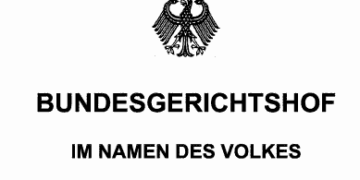The question of what exactly someone who has been convicted of an omission by a court must do repeatedly leads to legal problems in the context of enforcement disputes. The Chamber Court in Berlin recently clarified what a company must do to prevent a re-publication of an online ad from being prevented.
According to that order, the debtor of a court prohibition order is regularly required to influence his employees accordingly by means of instructions and orders in the particular individual case and to closely monitor compliance. It is not enough simply to inform employees of the content of a title and to ask them to behave appropriately.
This obligation may be particularly relevant in larger companies where different departments may be active. The same applies to contractors undertakings whose actions benefit the debtor economically.
In this respect, it is not sufficient for compliance with the obligation to cease and desist that the debtor simply informs the distribution company commissioned by it of the cease and desist order.
The judgment is thus in line with the decision of the Regional Court of Frankfurt on the actions of commercial agents (see this decision) and the decision of the Regional Court of Frankenthal on liability for the actions of advertising partners (see this article). This judgment must be distinguished from the recent judgment of the Frankfurt Higher Regional Court on liability for the actions of third parties(see this article), because in this case the liable company did not have its own duty of care, which in the decision of the Court of Appeal arose precisely from the injunction.
Therefore, one should be very careful in the case of injunction obligations, even if they are not yet legally binding but provisionally enforceable. In the present case, it cost the debtor EUR 15,000 in fines.

















